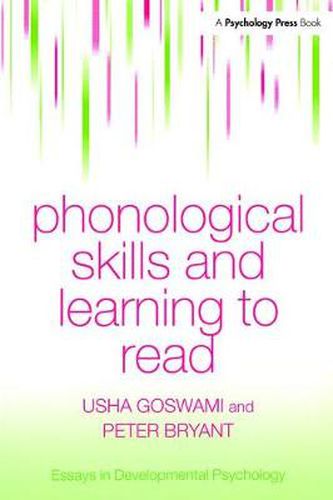Readings Newsletter
Become a Readings Member to make your shopping experience even easier.
Sign in or sign up for free!
You’re not far away from qualifying for FREE standard shipping within Australia
You’ve qualified for FREE standard shipping within Australia
The cart is loading…






This book sets out to integrate recent exciting research on the precursors of reading and early reading strategies adopted by children in the classroom. It aims to develop a theory about why early phonological skills are crucial in learning to read, and shows how phonological knowledge about rhymes and other units of sound helps children learn about letter sequences when beginning to be taught to read.
The authors begin by contrasting theories which suggest that children’s phonological awareness is a result of the experience of learning to read and those that suggest that phonological awareness precedes, and is a causal determinant of, reading. The authors argue for a version of the second kind of theory and show that children are aware of speech units, called onset and rime, before they learn to read and spell. An important part of the argument is that children make analogies and inferences about these letter sequences in order to read and write new words.
$9.00 standard shipping within Australia
FREE standard shipping within Australia for orders over $100.00
Express & International shipping calculated at checkout
Stock availability can be subject to change without notice. We recommend calling the shop or contacting our online team to check availability of low stock items. Please see our Shopping Online page for more details.
This book sets out to integrate recent exciting research on the precursors of reading and early reading strategies adopted by children in the classroom. It aims to develop a theory about why early phonological skills are crucial in learning to read, and shows how phonological knowledge about rhymes and other units of sound helps children learn about letter sequences when beginning to be taught to read.
The authors begin by contrasting theories which suggest that children’s phonological awareness is a result of the experience of learning to read and those that suggest that phonological awareness precedes, and is a causal determinant of, reading. The authors argue for a version of the second kind of theory and show that children are aware of speech units, called onset and rime, before they learn to read and spell. An important part of the argument is that children make analogies and inferences about these letter sequences in order to read and write new words.